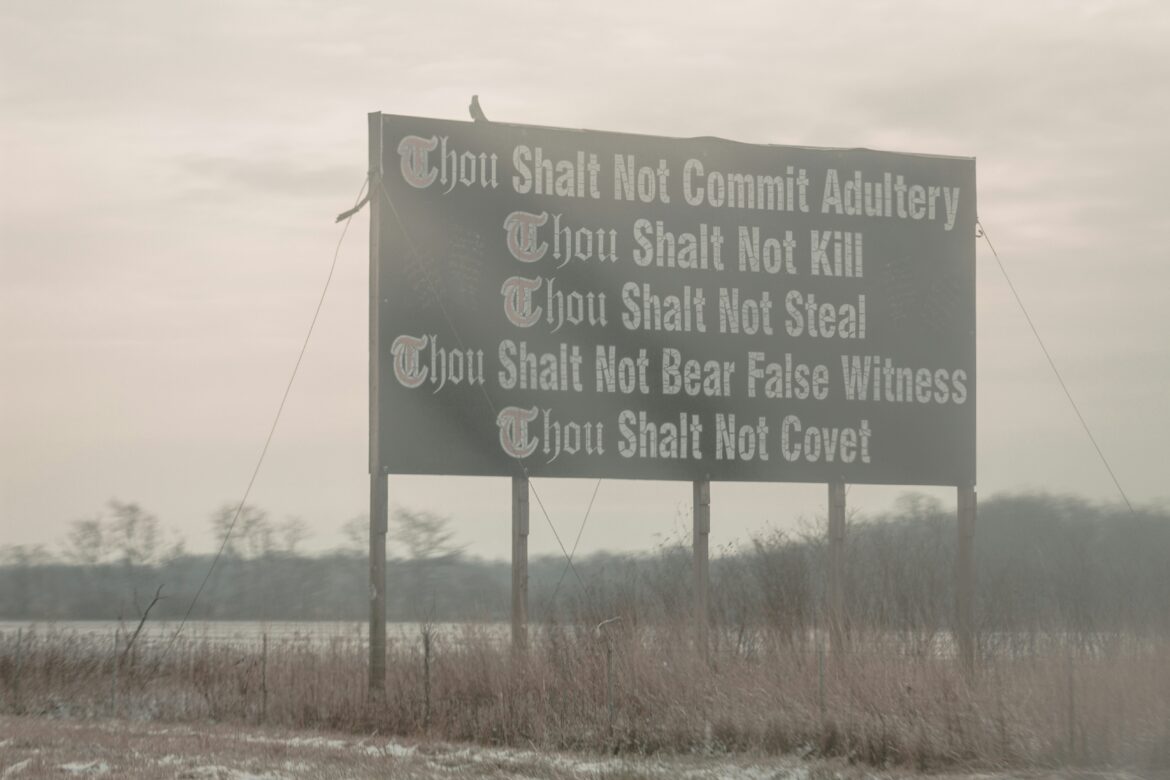In an almost unbelievable effort to bridge the gap between church and state, Louisiana Governor Jeff Landry (Republican) signed HB71, a bill to mandate the Ten Commandments in every public school classroom, including grades K-12 and any publicly-funded university. Though currently facing a lawsuit that may hinder its application, the mere proposal of this bill indicates concerning trends in the US political and educational climate.
Since the 1800s, the United States has boasted the separation between church and state, focusing on religious freedom from government influence. Though the Constitution aimed to allow religious freedom from state supervision, this separation has also allowed, in theory, freedom of the state from religious influence. Despite their claim of protecting people’s privacy and freedom from government influence, Christian nationalists have brought this separation into question, with increasing restrictions on abortion and gender-affirming care being pushed by Christian conservative legislators.
The bill, set to be fully implemented by January 2025, decrees that the Ten Commandments must be displayed in every public school classroom on paper at least 11×14 inches with a “large, easily readable font,” clearly a sight not to be missed. However, the bill does not require the use of public school funds to place these Commandments in classrooms. Instead, the bill vaguely mentions private donations, which are not guaranteed to show. The authors, including Senator Adam Bass, seemingly ignore key logistics. When asked what would happen if a donor could not be secured, Bass replied, “I don’t know what happens then.” Clearly they thought everyone would be on board. Further, enforcement is another issue, with opaque understandings from those who wrote the bill and those reporting on it. Despite future logistics, conservative politicians firmly believe in the importance of the Ten Commandments in all public schools. Their reasoning includes the Ten Commandments’ central part in “national history, culture, and tradition” and the belief that children need Christian guidance due to increasingly ‘non-traditional’ influences. Morals and actions deemed non-traditional tend to be ones that oppose evangelicalism, i.e. they lead people to leave the church and are therefore a threat. Conservative Christian nationalism is common in the Louisianan public school system. Beyond this bill, HB122, signed by House Rep Dodie Horton on June 19th, is the equivalent of a “Don’t Say Gay” bill, which prevents the discussion of sexual orientation and gender identity in grades K-12. Further, the Given Name Act prevents trans students from being called by their chosen names, forcing them to be addressed by their dead names.
HB71 is a clear step towards Christian nationalism in the US public school system. By arguing that HB71 represents a “common cultural heritage,” the authors exclude those who are not Christians, thus depicting a very white and Christian United States that does not represent the actual people. Considering the first commandment declares that one may only hold one specific god, non-Christians, and specifically non-evangelicals, will feel unwelcome in the classroom. It is essential to clarify the inherent difference between evangelicalism and other sects of Christianity. In the southern United States, the Bible Belt holds a long history of religiously influenced social conservatism. 84% of Louisiana is Christian, with a third of those being evangelical protestants. The long history of religious conservatism in Louisiana creates the context in which this bill was able to be penned and passed in the House of Representatives. Because of this conservative history, LGBT and racial justice in classrooms have been repeatedly attacked by legislators.
Due to many of the above mentioned concerns, HB71 is facing a lawsuit by concerned parents of all faiths in the state. Deeming the bill unconstitutional on the grounds of limiting religious freedom, the ACLU and Louisiana parents argue that “we live in a democracy, not a theocracy,” and this bill must not be implemented. Though the lawsuit may prevent the bill from being implemented, the mere fact that it was pushed in the first place warns of increasing conservatism in the country. As the lawsuit goes through the court system, it will be interesting to see how the climate changes in public school classrooms.
Further, the upcoming US election may determine the trends of increased religion in classrooms. Project 2025, a Christian nationalist document and overhaul plan for the structure of the US government and public education institutions, is concerningly trending toward anti-LGBT and pro-Christian rhetoric in the classroom. Though Donald Trump, the Republican nominee, vehemently denies supporting Project 2025, his former advisor Paul Dans was one of the creators of this project, flagging concern for if Trump wins. In addition to this speculation, Trump’s running mate JD Vance is heavily involved in the project, having written the foreword for 2025’s upcoming book. Though he may separate himself, Trump’s associates paint a different picture of continued support of the project. Thus, while Project 2025 is still far from becoming a reality, HB71 and other Christian nationalist bills indicate an increase in hyper-conservatism in the classroom.
While HB71’s legality is still being settled in court, the possibility of it being implemented in January concerns aspects of religious freedom, or freedom from religion. Trends in Christian nationalism in Louisiana, especially in the education sector, lend to an unsafe environment for many marginalized students; with the upcoming election and many more bills changing the education system, Louisiana public schools, no doubt, have a long road ahead.
Edited by Katerina Ntregkas

